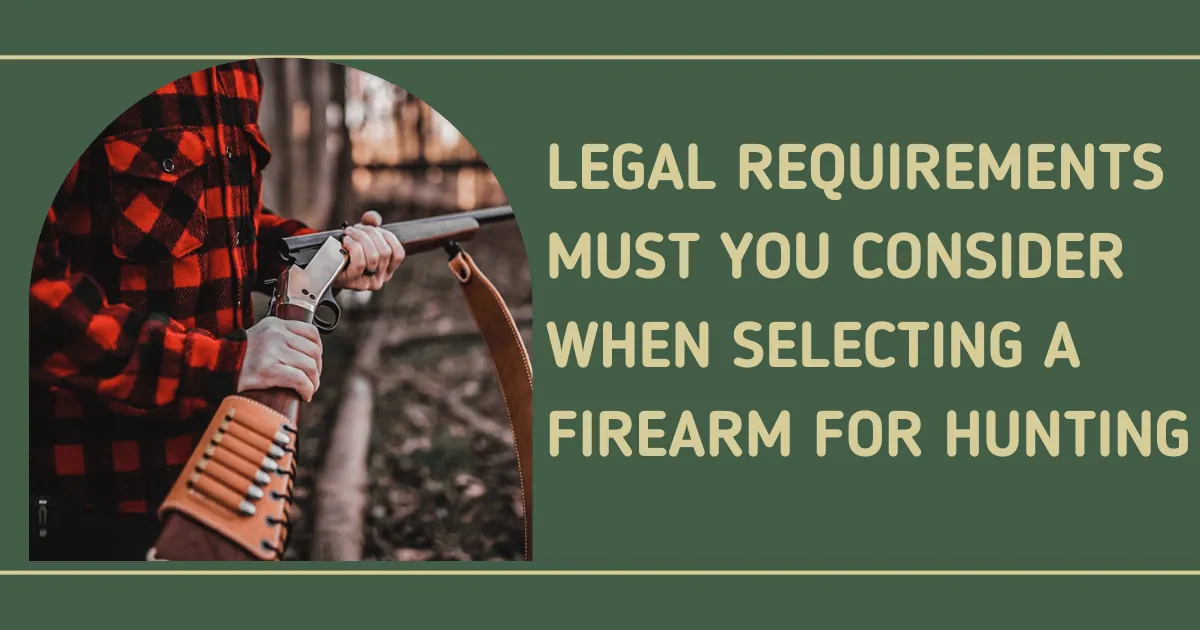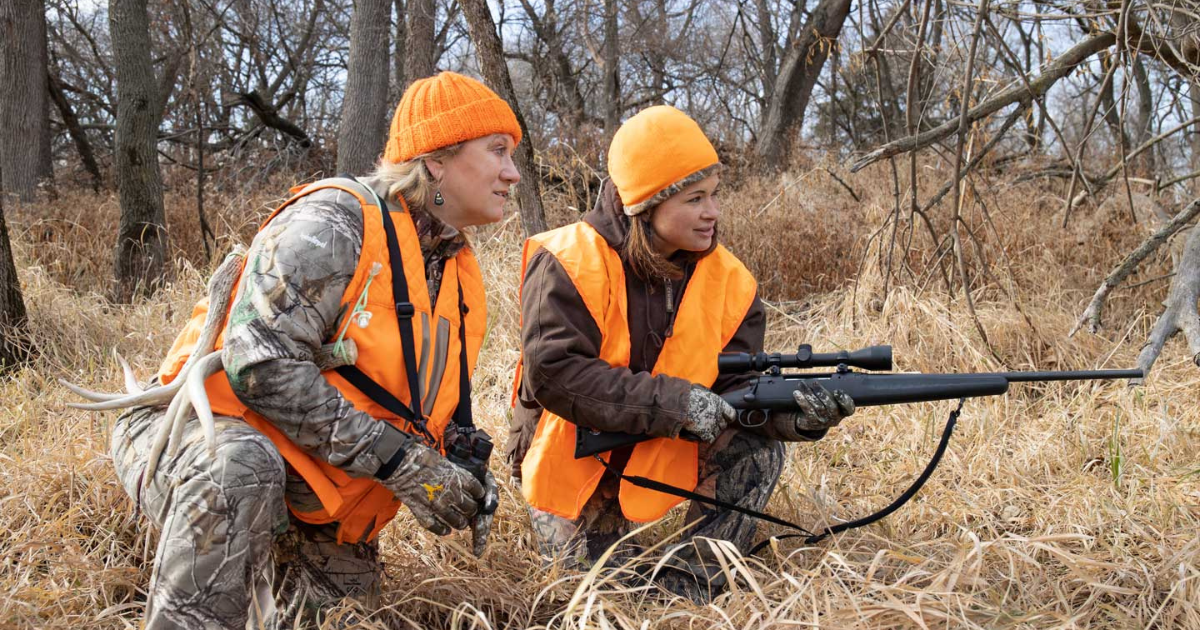Hunting, deeply rooted in human history, serves both as a survival necessity and a recreational pursuit. As hunters engage in this timeless activity, understanding the legal requirements for selecting a firearm is paramount. Let’s take a detailed look at the legal intricacies tied to choosing a hunting firearm, and promoting a hunting experience grounded in responsibility and adherence to the law.
Table of Contents
Local Regulations
To navigate these, hunters should thoroughly explore sub-topics such as:
Zoning Laws:
In the United States, zoning laws can vary widely from state to state and even within different counties. For example, in states like Texas, zoning laws may designate certain areas as wildlife management zones, where hunting is regulated to maintain ecological balance1. In contrast, states like Colorado may have different zoning laws that prohibit hunting in designated urban or residential zones.
Landowner Permissions:
In the U.S., many states uphold the principle of private property rights, allowing landowners to control access to their land. Hunters need to obtain explicit permission from landowners before hunting on private property. States like Montana emphasize the importance of gaining written permission, and hunters are encouraged to be familiar with state-specific regulations.
Firearm Licensing and Registration
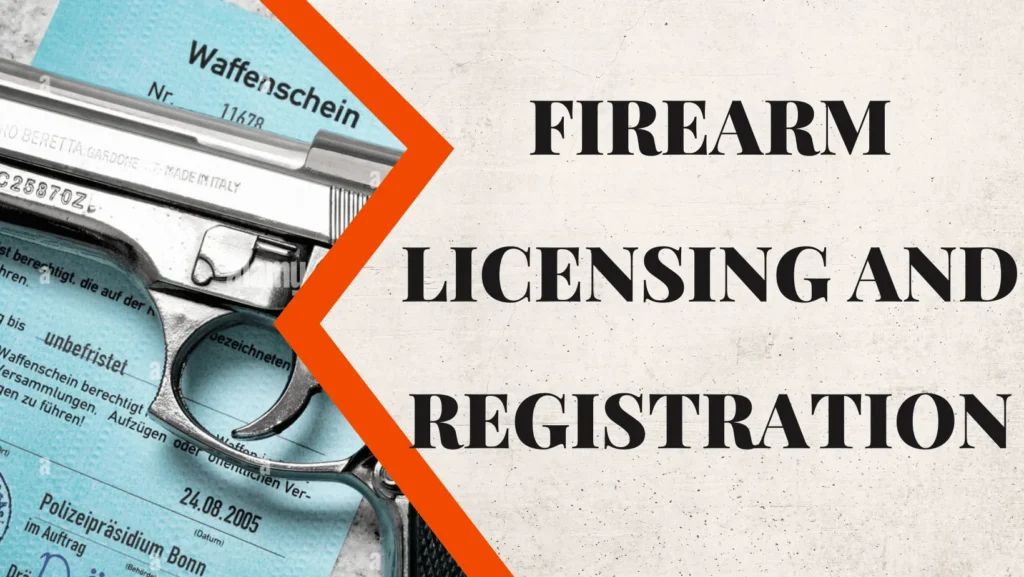
Firearm licensing and registration stand as pivotal components of legal compliance for hunters in the United States. The nuances of this process can significantly impact your ability to engage in hunting activities.
Some Key Points Are As Under
1. Application Process:
Applying for a hunting license involves a series of steps that vary from state to state. In the United States, each state has its wildlife agency responsible for overseeing hunting regulations and licensing. For example, in California, hunters can apply for licenses through the California Department of Fish and Wildlife (CDFW). The application process typically requires the completion of a hunter education course, proof of residency, and payment of applicable fees.
2. Renewal Procedures:
Securing your hunting license is not a one-time effort; it requires periodic renewal. Renewal procedures ensure that your license remains valid, allowing you to continue enjoying the privileges of legal hunting. Renewal processes also vary by state, with some states offering online renewal options for added convenience. For instance, in Pennsylvania, hunters can renew their licenses online through the Pennsylvania Automated License System (PALS).
Firearm Types and Restrictions
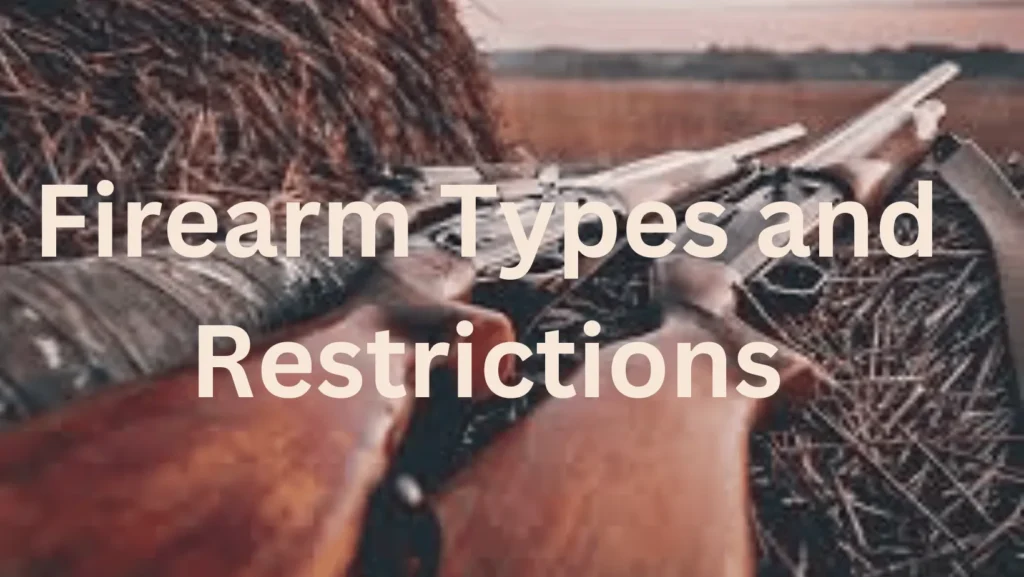
The types of firearms allowed for hunting are vital for maintaining a responsible and legal hunting experience.
1. Caliber Restrictions:
Local authorities often impose restrictions on specific calibers that can be used for hunting. These restrictions aim to maintain safety, protect wildlife, and ensure ethical hunting practices. For instance, in some states, there may be limitations on using high-caliber firearms for certain game species to prevent over-penetration and promote a humane kill.
2. Action Type Guidelines:
Different action types in firearms, such as bolt action, or semi-automatic. may be subject to regulations. Some states have specific guidelines governing the use of certain action types based on the type of game being hunted. For instance, bolt-action rifles may be preferred for larger games, while semi-automatic firearms may have restrictions in place.
Reference:
Explore resources like Firearm Action Types for an in-depth guide on the characteristics and applications of different action types. Additionally, consult your state’s hunting regulations for specific guidelines on the permissible use of various action types.
3. Cross-referencing with Local Regulations:
Cross-referencing your firearm choice with local regulations is vital to ensure compliance with guidelines set by the Hunting Regulations Authority. This may involve consulting regional hunting regulations or guidelines provided by state wildlife agencies.
By staying informed about caliber restrictions, action type guidelines, and local regulations, hunters can make responsible choices in selecting firearms for hunting. This not only ensures legal compliance but also contributes to ethical and sustainable hunting practices.
Ethical Considerations
Beyond the legal requirements, ethical considerations are integral to responsible hunting practices, contributing to the sustainable and humane pursuit of this age-old activity.
1. Humane Practices:
This involves selecting firearms that prioritize a swift and humane kill, minimizing unnecessary suffering for the harvested game. Hunters should be mindful of shot placement, choosing ammunition that is appropriate for the size and type of game being pursued. Staying informed about the latest advancements in firearm technology that enhance accuracy and effectiveness while minimizing pain is crucial.
2. Wildlife Conservation:
Ethical hunters actively engage in wildlife conservation efforts during their hunting activities. This includes adhering to bag limits and seasons set by wildlife management authorities to prevent overharvesting and maintain healthy populations. Responsible hunters also contribute to conservation through habitat preservation, participation in conservation programs, and supporting initiatives aimed at protecting the natural environment. The concept of “fair chase” is often emphasized, promoting a balance where the hunter and the hunted engage in a natural and ethical interaction.
Reference:
For additional information on humane practices and wildlife conservation, consider exploring reputable resources such as the Boone and Crockett Club, the Humane Society of the United States, and the National Wildlife Federation.
Choosing the Right Firearm

Researching Game and Terrain
Before selecting a firearm, in-depth research into the game and terrain you’ll encounter is essential for a successful and ethical hunting experience.
1. Game Behavior:
The behavior of different game species is important for effective hunting. Each species exhibits distinct behaviors, such as feeding patterns, mating rituals, and preferred habitats. For example, researching the mating calls of elk or the nesting habits of waterfowl can significantly enhance your hunting strategy. This knowledge allows hunters to anticipate movements, increasing the likelihood of a successful and ethical harvest.
2. Terrain Influence:
Consideration of how terrain impacts your firearm choice is vital. Different terrains require distinct attributes in a firearm. For instance, hunting in dense forests may necessitate a compact and maneuverable firearm, while open plains may allow for longer-range shots. Understanding how the landscape influences your approach ensures that you select a firearm tailored to the specific challenges posed by the terrain.
Reference:
The Wildlife Conservation Society offers valuable insights into regional game species and their habitats.
Selecting Caliber and Action Type
The caliber and action type of your firearm play a pivotal role in determining hunting success. Understanding the nuances of these factors is crucial for making informed decisions.
1. Caliber Selection:
Choosing the right caliber for a specific game is a nuanced process that requires careful consideration. Different game species may demand varying levels of stopping power and precision. Factors such as distance, accuracy, and the size of the intended target influence caliber selection. For instance, a larger caliber may be suitable for big game like bears, while a smaller caliber may be more appropriate for small game like rabbits.
2. Action Type Considerations:
Pros and Cons of different action types are essential for optimizing your hunting experience. The action type influences how cartridges are loaded and unloaded into the firearm. Bolt action, lever action, semi-automatic, and pump action are among the common types, each with its unique characteristics. Consider factors such as speed of follow-up shots, reliability, and simplicity when evaluating which action type aligns with your hunting needs.
Firearm Regulations
Firearm regulations are paramount for responsible firearm ownership among hunters.
1. National Laws:
Explore federal regulations governing firearms in the United States, including background checks, waiting periods, and restrictions under the National Firearms Act. The Bureau of Alcohol, Tobacco, Firearms, and Explosives provides centralized resources, ensuring hunters are well-informed about legal requirements.
2. International Considerations:
International regulations impacting hunting across borders. Refer to the Food and Agriculture Organization for guidance on traveling with firearms and complying with legal aspects in various countries.
Hunting License Renewal
Ensuring the timely renewal of your hunting license is crucial.
1. Renewal Deadlines:
Stay informed about renewal deadlines to avoid legal complications. Missing deadlines can result in the expiration of your hunting license. Adhering to renewal timelines ensures continuous legality in your hunting pursuits.
2. Online Renewal Processes:
Utilize online portals for seamless license renewals. Many states offer user-friendly online platforms that streamline the renewal process. This convenient option saves time and ensures efficient renewal from the comfort of your home.
Reference:
The Hunting License Renewal Portal provides a user-friendly platform, simplifying the renewal process.
Seasonal Restrictions
Seasonal restrictions are vital for ethical and legal hunting.
1. Breeding Seasons:
Restrictions are imposed during breeding seasons. Certain states may implement restrictions during deer breeding seasons to protect pregnant fawns. Being aware of these limitations ensures hunters avoid undue disruption to the natural reproductive cycles of game species.
2. Migration Periods:
Migration periods impact hunting activities. Waterfowl, Often have specific migration periods, and hunting during these times may be subject to regulations. These patterns ensure hunters respect the natural behaviors of migratory species.
Reference:
This resource provides hunters with a clear overview of when certain restrictions are in place, allowing for informed and responsible hunting practices.
Safety Courses
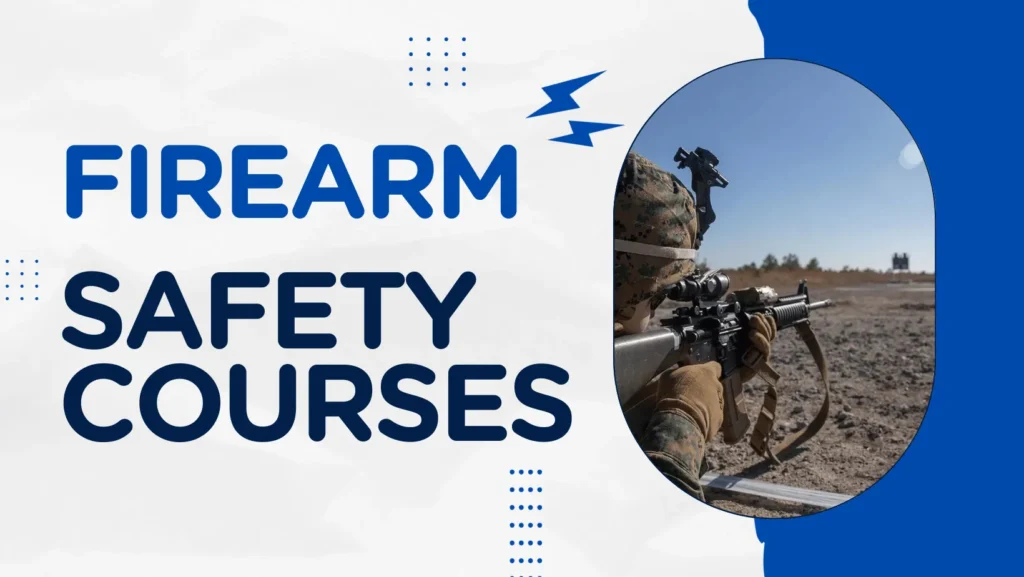
Participating in safety courses is responsible and often legally required in the USA.
1. Online Course Availability:
Online safety courses for convenient completion at home. Many states offer this option to enhance accessibility for busy individuals.
2. Practical Training:
Understand the importance of practical sessions for hands-on experience. A combination of online knowledge and practical training ensures a comprehensive safety education.
Tagging Requirements
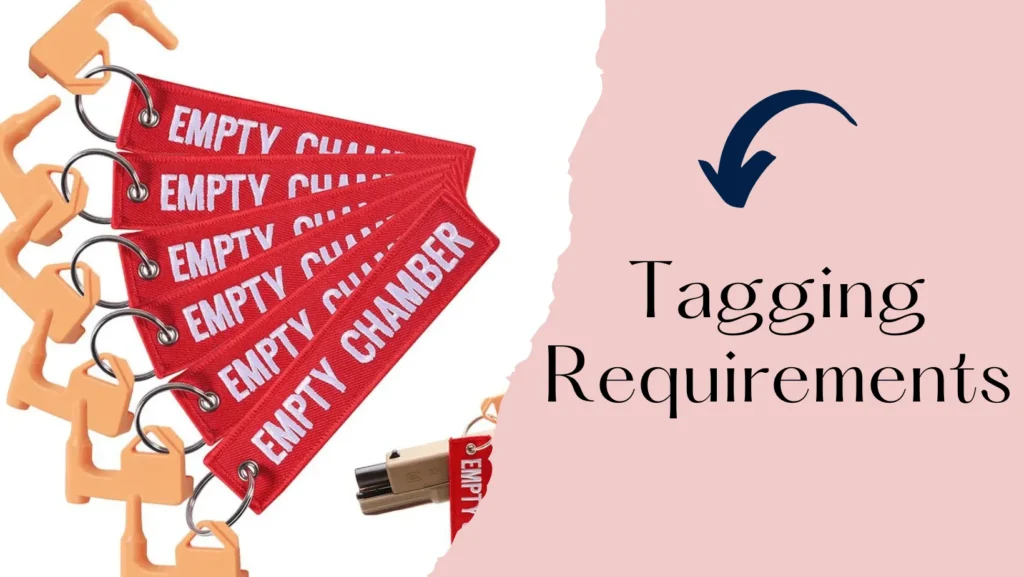
Tagging requirements are crucial for tracking harvested game:
1. Tagging Procedures:
The tagging harvested game methods include attaching a physical tag or using electronic tags. Hunters affix a paper tag to the animal immediately after harvest.
2. Legal Implications:
The legal consequences of failing to tag harvested animals. Non-compliance can result in fines. In Texas, for instance, failure to tag a deer can lead to penalties.
Reference:
Check the Game Tagging Guidelines for detailed insights. Ensure you follow your state’s guidelines for tagging methods and legal requirements, promoting ethical and lawful hunting practices.
Species-specific Regulations
Different game species may have distinct regulations:
1. Bag Limits:
Understand restrictions on the number of animals you can harvest. In Colorado, there might be specific bag limits for deer and elk during different hunting seasons.
2. Habitat Protection:
The regulations aimed at protecting specific habitats. Certain areas may have restrictions on hunting to preserve critical habitats, ensuring the ecological balance is maintained.
Public Lands Regulations
When hunting on public lands, it’s important to be aware of additional regulations, including permits:
1. Permit Requirements:
Understand if permits are required for hunting on public lands. Different types of permits may be necessary based on factors like the type of game, location, and hunting season.
2. Types of Permits and Requirements:
Common types include:
- Small Game Hunting Permit
- Deer Hunting Permit
- Turkey Hunting Permit
Each permit may have specific requirements, such as bag limits, designated areas, and seasonal restrictions. Familiarize yourself with the details of the permit that align with your intended hunt.
3. Conservation Initiatives:
Regulations aimed at preserving public lands may be tied to specific permits. This could include restrictions on certain hunting practices or designated areas to safeguard sensitive ecosystems.
Transportation Laws
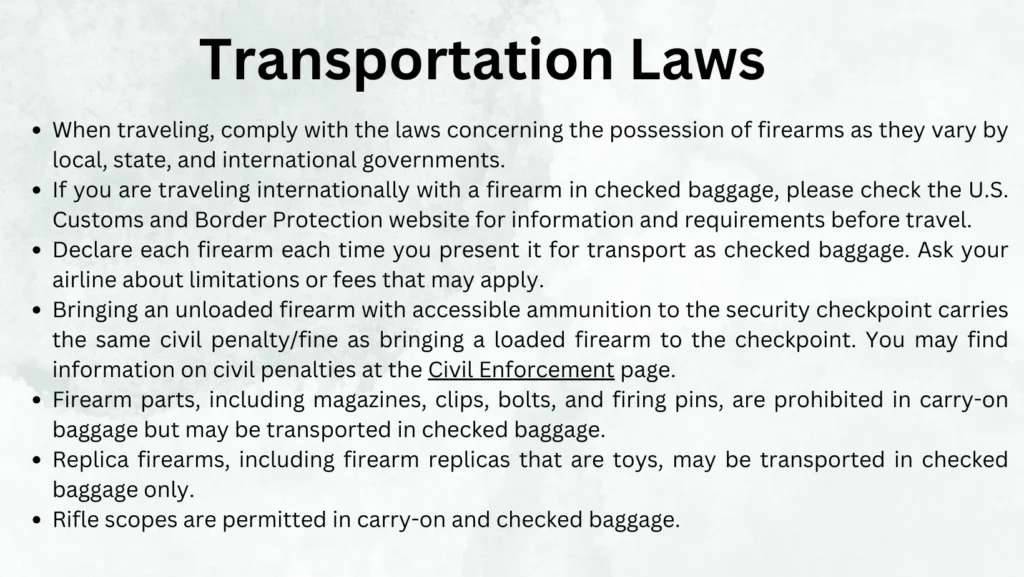
Transporting firearms involves important legal considerations:
1. Secure Transport:
Acknowledge the legal requirements for securing firearms during transportation. This often includes using locked cases or safes to prevent unauthorized access. In some states, firearms must be unloaded and secured in a locked compartment during transport.
2. Interstate Transportation:
Explore regulations for transporting firearms across state lines. Laws may vary, and it’s crucial to comply with both the state of departure and the destination. The federal law allows the transport of firearms across state lines for lawful purposes, but state-specific restrictions may apply.
3. Applicable Laws: Familiarize yourself with specific firearm transportation laws, including:
- The Firearm Owners’ Protection Act (FOPA): Provides protections for transporting firearms across state lines for lawful purposes.
- State-specific Regulations: Check the laws of each state you will be traveling through, as some may have additional requirements or restrictions.
Background Checks
Conducting a thorough background check before purchasing a firearm is crucial:
1. Waiting Periods:
Waiting periods, such as the 3-day waiting period in some states, allow for a comprehensive review of the prospective buyer’s background.
2. Legal Implications:
Explore the legal consequences of failing a background check. Failing a background check may result in the denial of the firearm purchase and could have legal repercussions.
3. National Firearm Background Check:
Utilize the services of the Federal Bureau of Investigation to ensure compliance with background check requirements. This service helps individuals and dealers verify the eligibility of prospective firearm purchasers, promoting responsible firearm ownership.
Conclusion
Navigating the legal landscape when selecting a firearm for hunting is a multifaceted journey. Each aspect, from local regulations and licensing to firearm types and ethical considerations, plays a crucial role in ensuring a responsible and lawful hunting experience.
